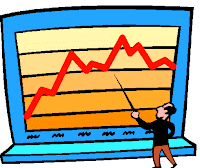One of my favorite volunteer board members - the chair of the development committee at a university I worked for - once said to the entire board, "
Remember, WE volunteer board members are the fundraisers here. The staff is hear to help us do our jobs." This resonated for me because I started out in development as a volunteer for one of the large Jewish Federations. We (
the volunteers) always understood that the task of asking for gifts was OUR responsibility, and that the campaign wouldn't be successful if we didn't do our jobs. Believe me, it was difficult, and took a lot of time; and we all had day jobs, too (mine was in the real estate business.)
By the time I was working at that university, development had changed - fundraising was much more in the hands of the professional staff, with limited support from the volunteers. That trend has continued, and the large size of the development staff at some institutions is evidence of it. But that volunteer chair still understood the power of the volunteer ask!
I still believe, as he does, that
the best development work is done by volunteers. When a business person asks a peer to support an organization that he or she believes in, the ask is almost always successful. When a development staff person makes a similar ask, the result is not nearly as assured.
Peers asking peers still works best! Perhaps it works even better today because it is not as common.
This is not to say that development staff isn't important. I still work in development, and believe that my work in cultivating and soliciting major prospective donors is crucial to the success of the organization I work for. But I also believe that when I can get the Board Chair, or another volunteer, in the room with the prospect, it is much more likely that we will get the gift we are seeking. Sometimes it takes a volunteer just to get the phone answered or the appointment set! Someone once said that
when you get the right person doing the ask for the right project at the right time, magic happens. As a professional development officer, I aspire to succeeding at that task, and really try to find the "right person", knowing that
it is sometimes me, but is much more often a volunteer!
It really pains me when I hear development staff members deriding volunteers as unskilled or "adding work" to "our already busy days." I am currently volunteering myself (yes, I sometimes take a "bus man's holiday") with an organization that has a half-time development officer who wouldn't be accomplishing nearly what she does if it weren't for a small group of volunteers dedicated to the success of the organization who are doing the hard work of developing strategies, cultivating, and soliciting major donors. I have never heard her complain about a volunteer!
Volunteers are our best friends in development. If you would like some help in figuring out the best ways to work with yours, give me a call.





